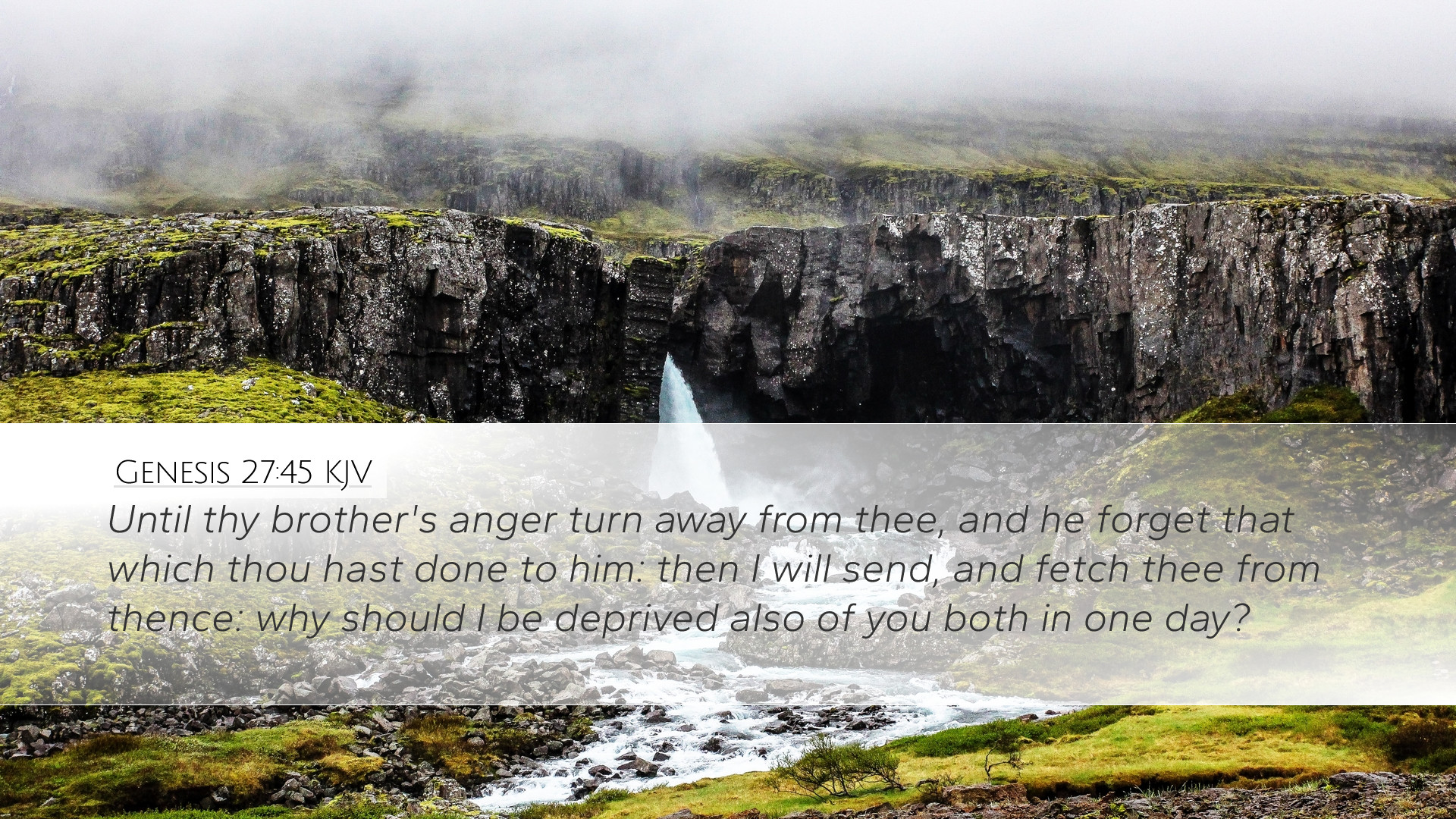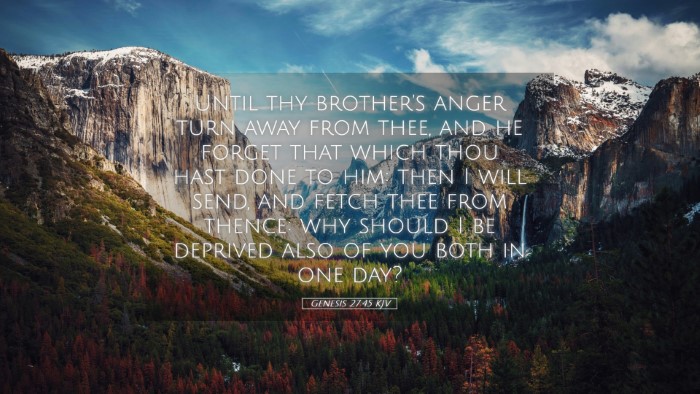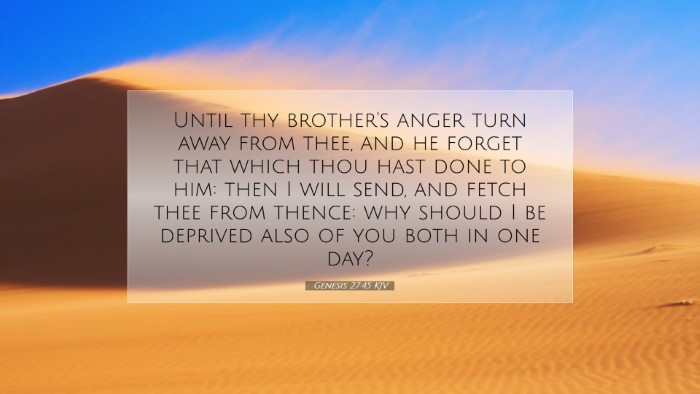Commentary on Genesis 27:45
Genesis 27:45 states: "Until your brother's anger turns away from you, and he forgets what you have done to him, then I will send and bring you from there. Why should I be deprived of you both in one day?" This verse is nestled in the narrative of Jacob receiving the blessing that was intended for Esau, leading to familial discord. The commentaries by Matthew Henry, Albert Barnes, and Adam Clarke provide insightful reflections on the implications of this verse, both in its immediate context and in broader theological considerations.
Contextual Overview
The context of Genesis 27 involves a critical episode in the lives of Isaac, Rebekah, Jacob, and Esau. Jacob, with Rebekah's encouragement, deceives his blind father Isaac to receive the blessing meant for Esau. This act creates significant tension, as Esau vows revenge. Rebekah, aware of the impending danger to Jacob, advises him to flee to her brother Laban.
Analysis of Key Themes
-
Divine Providence:
The narrative reflects God's sovereignty even amidst human failure and deceit. Despite the flawed actions of Jacob and Rebekah, God's covenantal promise remains intact, signifying that His purposes prevail regardless of human sin. Albert Barnes emphasizes that God can use even human frailties to accomplish His divine will, pointing to the overarching theme of redemption through flawed vessels.
-
Family Dynamics:
The intense emotions depicted in this passage, especially the hostility between brothers, point towards the complexities of familial relationships. Matthew Henry notes that the tension created by favoritism and deception within the family leads to a cycle of mistrust and separation. The consequences of these actions remind readers of the need for integrity in relationships.
-
Fear and Refuge:
Jacob's fear propels him into exile, shaping his journey toward becoming the patriarch of Israel. Adam Clarke observes that Jacob’s flight symbolizes the spiritual journey believers undertake when faced with the consequences of their actions. Clarke posits that God often allows such circumstances to lead individuals toward personal growth and reliance on divine guidance.
Theological Reflections
The verse invites contemplation on several theological themes, including God's mercy and justice. The concept of being "deprived in one day" signifies the importance of family unity. This phrase resonates with the theological principle that God values relationships and unity among his people.
Mercy Amidst Justice
The interplay of mercy and justice in this narrative offers a profound insight into God's character. Rebekah's plea illustrates a mother's love and her innate desire to protect her son, Jacob, even while acknowledging the gravity of their actions. Both Barnes and Clarke emphasize that God's plans are not thwarted by human actions, yet He remains deeply concerned for the integrity and well-being of His creation.
Lessons on Conflict Resolution
This verse serves as a poignant reminder for contemporary readers about the nature of conflict resolution. The familial dispute illustrates the importance of seeking reconciliation rather than allowing anger and bitterness to fester. According to Henry, the experience of Jacob and Esau reflects the call for forgiveness and humility, urging believers not to let unresolved conflict lead to estrangement.
Practical Applications
-
Emphasizing Integrity:
Pastors and theologians are encouraged to draw from this narrative the vital lesson of integrity in dealings with others. The actions of Jacob and Rebekah serve as a caution against deceit and manipulation, reminding modern believers of the value of honesty and transparency.
-
Promoting Reconciliation:
The call for reconciliation is paramount. As the verse implies a waiting period until emotions settle, it inspires contemporary individuals to approach situations of conflict with grace and the wisdom to wait for the right moment for resolution.
-
Trusting Divine Timing:
Finally, both Henry and Clarke encourage a trust in God's timing. As Jacob must wait until the anger of Esau subsides, believers are reminded of the importance of patience and trust in God’s oversight of their lives.
Conclusion
Genesis 27:45 encapsulates a struggle that resonates throughout human history: the challenge of conflict within relationships. As scholars, students, and religious leaders reflect on this passage, they are invited to consider its implications for personal conduct, familial harmony, and the assurance of God's providence. The insights from Matthew Henry, Albert Barnes, and Adam Clarke collectively enrich an understanding of this verse, offering timeless wisdom that remains relevant for all who seek to navigate the complexities of life and faith.


